Terry Gilliam filmed his newest movie, Tideland, in Saskatchewan last fall, ra-cing to complete the location shots before winter set in. The Mitch Cullin novel on which the film is based is mostly set in West Texas, but Gilliam had substituted the Canadian prairie instead. The evening after he wrapped, it started to snow, and the cast, crew and director all saw this as an omen.
If this had been a Gilliam production beset by the kind of bad fortune that has sometimes clung to his movies, the snow would have blown in much sooner, lots of it; the cameras would have frozen, turning the fingers of the cinematographer, Nicola Pecorini, black with frostbite; the stars would have been evacuated by chopper -- or rather, the budget having most likely run out, by dog sled. Tideland went on to be finished on schedule and will have its premiere at the Toronto International Film Festival next month.
Meanwhile, the director has another movie, The Brothers Grimm, starring Matt Damon (with 19th-century bad hair) and Heath Ledger, opening today after more than a year of disputes and postponements. Together, the two films mark the end of the longest dry spell in Gilliam's 31-year career.
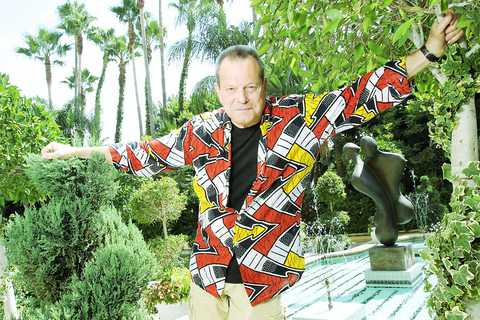
PHOTOS: NY TIMES
In the years since he left the Monty Python troupe, Gilliam has acquired a reputation for being both a visionary and -- in Hollywood it amounts to the same thing -- a bit of a madman, and has therefore done more than his share of stints in development hell.
Unless you count his starring role in Keith Fulton and Louis Pepe's 2002 documentary Lost in La Mancha, he has been absent from the screen since 1998, when his Fear and Loathing in Las Vegas came out. And the documentary, about the Job-like streak of bad luck Gilliam endured while trying to work on a film version of Don Quixote, almost makes you wonder why he ever wanted to make a movie again.
Gilliam's critics believe that he brings some of his bad luck upon himself -- by wishfully imagining that he can make movies for less than they cost and by seldom holding his tongue -- and there is probably something to this. Gilliam admits to being combative, and he can be a little childish. (His production company is called Poo Poo Pictures.) And he takes an even dimmer view of Hollywood than Hollywood takes of him.
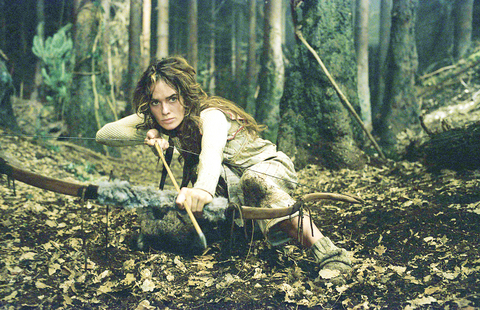
"It's an abominable place," he said over lunch recently in London, where he lives with his wife and three children. "If there was an Old Testament God, he would do his job and wipe the place out. The only bad thing is that some really good restaurants would go up as well."
Chortling and warming to the theme, he added, "Hollywood dominates the world so much it's scary. And it's just a village with a few people. It's very small and very provincial." He threw in some obscene imagery for good measure. "And there's always this accepted knowledge, `Oh, we can't make a movie with him, because his last movie tanked.' There's no long-term plan or view -- nothing." He sighed, then added, "But I need their money."
Gilliam's first brush with Hollywood came in 1985, with the dystopian fantasy Brazil, which Sidney Sheinberg, then the head of Universal, insisted was too long. Gilliam refused to cut it and after months of stalemate purchased an advertisement in Variety that said, "Dear Sid Sheinberg, When are you going to release my movie, Brazil?"
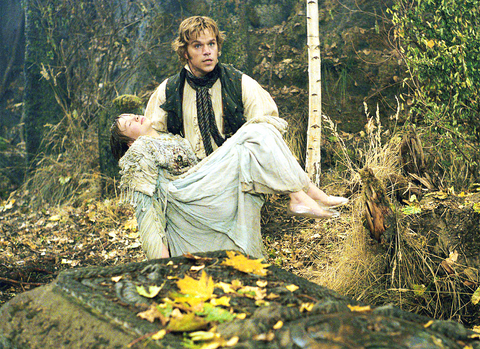
Gilliam's next picture, The Adventures of Baron Munchausen, cost US$40 million. By current standards, that seems like peanuts. But it was a lot more than the US$24 million that he and his producer had convinced themselves it would cost. They wound up blowing their budget in the first six weeks. His subsequent movies, Gilliam likes to point out, all came in on budget, and The Fisher King and Twelve Monkeys both made money. "But it's all perception," he said last fall. "Once you become the rebel, the enfant terrible, the troublemaker, it just sticks."
Over the course of a couple of days on the Tideland set last fall (after the shooting had moved to an indoor sound stage in Regina), Gilliam the rebel, the enfant terrible, the troublemaker was almost nowhere in evidence. He is 64, though you would never know it except when he's tired and slumps into a bent-over old man's walk. He wears cargo pants, bowling shoes and Hawaiian shirts, and perhaps in homage to the 1960s, when he was a pioneer longhair, he has a narrow little plait that dangles like a rat tail down the back of his neck. During shooting he was all business, chomping cinnamon-flavored gum as he hunched over a video monitor, but between takes he bounded around the set, greeting and joking with the crew and occasionally even asking for advice. Morale was high, the shooting was going well.
"The world would be a better place if it was directed by Terry Gilliam," a crew member said to me in complete sincerity. Tideland combines elements of Psycho, Lolita, Alice's Adventures in Wonderland and William Faulkner's Rose for Emily to tell the story of a little girl who takes refuge from her dope-addict father in a world of imaginary companions, and who has a sexual relationship of sorts with an older retarded man.
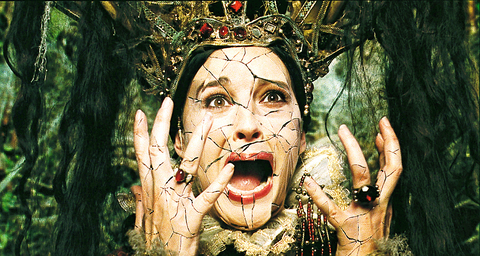
The movie has a tiny cast featuring Jeff Bridges and an almost freakishly talented 10-year-old Canadian actress named Jodelle Ferland, who likes to boast that she has already appeared in more movies and television shows -- 25 by her count -- than Terry Gilliam has ever made. The production had an almost laughably small budget and was reduced to economies like requiring the first and second units to share a single set of camera lenses. Gilliam told me that he found the smallness of the production liberating in a way, because it meant no one from a studio was looking over his shoulder, but it was clear that he was also frustrated at times.
One morning the script called for a shot in which the camera pulled back from a close-up of a menacing doll's head and then lifted up, turning as it went, to take in an entire room. It would have been a simple shot if the camera had been equipped with a motorized remote-control arm, but there wasn't enough in the budget for that, and so the operator had to lift and turn the camera manually. He tried it several times, and each time Gilliam, watching on the monitor, detected either a pause or a lurch in the motion.
"It's jerky, jerky, jerky," he said, a little impatiently. "Try it again." Finally, after the fifth attempt, he stood up and said: "Time to get out of this. That's the best we're going to do, I guess. We have to move on."
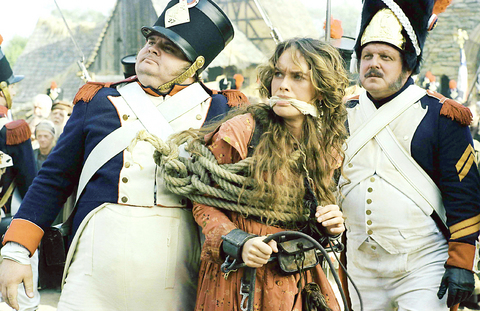
Later, in a little room that had been set aside as his office and hideout, he said, "My problem is I worry too much sometimes about the time things are taking. And I keep pushing to get it done. So I say, `OK, we'll live with that,' and keep moving forward. And it's always been like that and I hate it. I hate being the one that's worried about the time."

It’s Aug. 8, Father’s Day in Taiwan. I asked a Chinese chatbot a simple question: “How is Father’s Day celebrated in Taiwan and China?” The answer was as ideological as it was unexpected. The AI said Taiwan is “a region” (地區) and “a province of China” (中國的省份). It then adopted the collective pronoun “we” to praise the holiday in the voice of the “Chinese government,” saying Father’s Day aligns with “core socialist values” of the “Chinese nation.” The chatbot was DeepSeek, the fastest growing app ever to reach 100 million users (in seven days!) and one of the world’s most advanced and
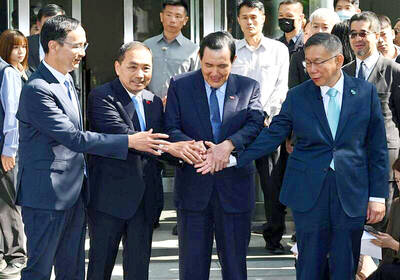
Has the Taiwan People’s Party (TPP) changed under the leadership of Huang Kuo-chang (黃國昌)? In tone and messaging, it obviously has, but this is largely driven by events over the past year. How much is surface noise, and how much is substance? How differently party founder Ko Wen-je (柯文哲) would have handled these events is impossible to determine because the biggest event was Ko’s own arrest on multiple corruption charges and being jailed incommunicado. To understand the similarities and differences that may be evolving in the Huang era, we must first understand Ko’s TPP. ELECTORAL STRATEGY The party’s strategy under Ko was
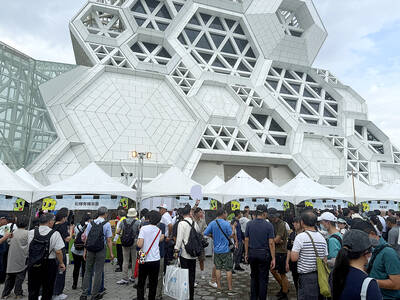
The latest edition of the Japan-Taiwan Fruit Festival took place in Kaohsiung on July 26 and 27. During the weekend, the dockside in front of the iconic Music Center was full of food stalls, and a stage welcomed performers. After the French-themed festival earlier in the summer, this is another example of Kaohsiung’s efforts to make the city more international. The event was originally initiated by the Japan-Taiwan Exchange Association in 2022. The goal was “to commemorate [the association’s] 50th anniversary and further strengthen the longstanding friendship between Japan and Taiwan,” says Kaohsiung Director-General of International Affairs Chang Yen-ching (張硯卿). “The first two editions
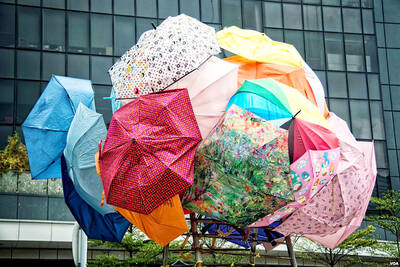
It was Christmas Eve 2024 and 19-year-old Chloe Cheung was lying in bed at home in Leeds when she found out the Chinese authorities had put a bounty on her head. As she scrolled through Instagram looking at festive songs, a stream of messages from old school friends started coming into her phone. Look at the news, they told her. Media outlets across east Asia were reporting that Cheung, who had just finished her A-levels, had been declared a threat to national security by officials in Hong Kong. There was an offer of HK$1m (NT$3.81 million) to anyone who could assist